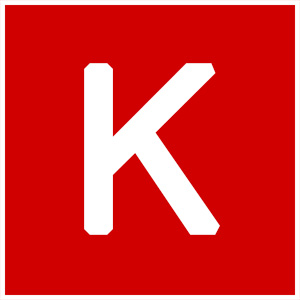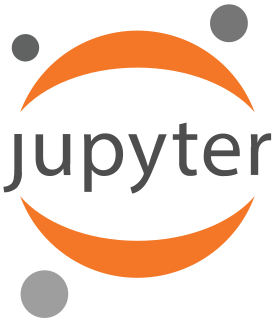
IBM Notes and IBM Domino are the client and server, respectively, of a collaborative client-server software platform sold by IBM.

MediaWiki is a free and open-source wiki engine. It was developed for use on Wikipedia in 2002, and given the name "MediaWiki" in 2003. It remains in use on Wikipedia and almost all other Wikimedia sites, including Wiktionary, Wikimedia Commons and Wikidata; these sites continue to define a large part of the requirement set for MediaWiki. MediaWiki was originally developed by Magnus Manske and improved by Lee Daniel Crocker. Its development has since then been coordinated by the Wikimedia Foundation.
In software development, distributed version control is a form of version control where the complete codebase - including its full history - is mirrored on every developer's computer. This allows branching and merging to be managed automatically, increases speeds of most operations, improves the ability to work offline, and does not rely on a single location for backups.
Markdown is a lightweight markup language with plain text formatting syntax. Its design allows it to be converted to many output formats, but the original tool by the same name only supports HTML. Markdown is often used to format readme files, for writing messages in online discussion forums, and to create rich text using a plain text editor.

TextMate is a general-purpose GUI text editor for macOS created by Allan Odgaard. TextMate features declarative customizations, tabs for open documents, recordable macros, folding sections, snippets, shell integration, and an extensible bundle system.
The following is a comparison of version-control software. The following tables include general and technical information on notable version control and software configuration management (SCM) software. For SCM software not suitable for source code, see Comparison of open-source configuration-management software.

Etherpad is an open-source, web-based collaborative real-time editor, allowing authors to simultaneously edit a text document, and see all of the participants' edits in real-time, with the ability to display each author's text in their own color. There is also a chat box in the sidebar to allow meta communication.

WikiTrust is a software product, available as a Firefox Plugin, which aimed to assist editors in detecting vandalism and dubious edits, by highlighting the "untrustworthy" text with a yellow or orange background. As of September 2017, the server is offline, but the code is still available for download, and parts of the code are being updated.

Elasticsearch is a search engine based on the Lucene library. It provides a distributed, multitenant-capable full-text search engine with an HTTP web interface and schema-free JSON documents. Elasticsearch is developed in Java. Following an open-core business model, parts of the software are licensed under various open source licenses, while other parts fall under the commercial (source-available) Elastic License. Official clients are available in Java, .NET (C#), PHP, Python, Apache Groovy, Ruby and many other languages. According to the DB-Engines ranking, Elasticsearch is the most popular enterprise search engine followed by Apache Solr, also based on Lucene.

RStudio is a free and open-source integrated development environment (IDE) for R, a programming language for statistical computing and graphics. RStudio was founded by JJ Allaire, creator of the programming language ColdFusion. Hadley Wickham is the Chief Scientist at RStudio.
Docker is a computer program that performs operating-system-level virtualization. It was first released in 2013 and is developed by Docker, Inc.
Authorea is an online collaborative writing tool that allows researchers to write, cite, collaborate, host data and publish. It has been described as "Google Docs for Scientists".

Google Docs is a word processor included as part of a free, web-based software office suite offered by Google within its Google Drive service. This service also includes Google Sheets and Google Slides, a spreadsheet and presentation program respectively. Google Docs is available as a web application, mobile app for Android, iOS, Windows, BlackBerry, and as a desktop application on Google's ChromeOS. The app is compatible with Microsoft Office file formats. The application allows users to create and edit files online while collaborating with other users in real-time. Edits are tracked by user with a revision history presenting changes. An editor's position is highlighted with an editor-specific color and cursor. A permissions system regulates what users can do. Updates have introduced features using machine learning, including "Explore", offering search results based on the contents of a document, and "Action items", allowing users to assign tasks to other users.
Hyperledger is an umbrella project of open source blockchains and related tools, started in December 2015 by the Linux Foundation, and supported by big industry players like IBM, Intel and SAP Ariba, to support the collaborative development of blockchain-based distributed ledgers.

Keras is an open-source neural-network library written in Python. It is capable of running on top of TensorFlow, Microsoft Cognitive Toolkit, Theano, or PlaidML. Designed to enable fast experimentation with deep neural networks, it focuses on being user-friendly, modular, and extensible. It was developed as part of the research effort of project ONEIROS, and its primary author and maintainer is François Chollet, a Google engineer. Chollet also is the author of the XCeption deep neural network model.

Project Jupyter is a nonprofit organization created to "develop open-source software, open-standards, and services for interactive computing across dozens of programming languages". Spun-off from IPython in 2014 by Fernando Pérez, Project Jupyter supports execution environments in several dozen languages. Project Jupyter's name is a reference to the three core programming languages supported by Jupyter, which are Julia, Python and R, and also an homage to Galileo's notebooks recording the discovery of the moons of Jupiter. Project Jupyter has developed and supported the interactive computing products Jupyter Notebook, Jupyter Hub, and Jupyter Lab, the next-generation version of Jupyter Notebook.










